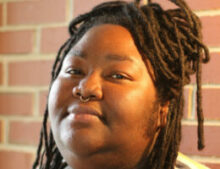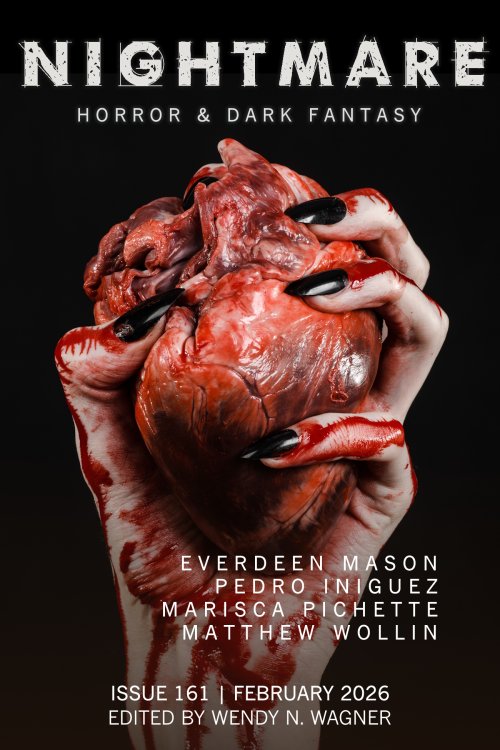Raised in the foothills of the Great Smoky Mountains, known for the uncanny woods one oughta avoid at night, I know fear. Growing up, fireside ghost stories (i.e., oral horror storytelling) felt too real. At church, I swore the shadows . . . lingered down corridors. And I avoided thinking of the echoing animal sounds outside my bedroom window.
Of course, there were brighter parts about growing up in Knoxville. Summers were spent catching fireflies, and I lived in a close-knit Black community with shared histories and stories that thrilled and inspired rather than terrified. Yet, one cannot embrace the beauty of Appalachia without acknowledging its complexity. Life often exists in murky unpleasantness. It is still lived and deserves to be made into art. I learned to find inspiration in what terrifies me, which ultimately led me to become a horror author—and my horror has Hoodoo.
What is Hoodoo?
Hoodoo, or conjure, encompasses spiritual practices and beliefs rooted in the traditions of enslaved Black people in America. When applied with herbs, roots, and other natural materials, it evolves into “rootwork.” While Hoodoo is similar to Voodoo, because it, too, belongs to the African diaspora, the main difference is that Voodoo is a religion, while Hoodoo is not.
Because of Hoodoo practitioners’ spiritual connection with their Black ancestors who were enslaved, it is a “closed” practice and unavailable to others.
Historically, empowerment and protection were often intentions embedded in Hoodoo practices and beliefs, which could be either religious or secular, and varied significantly from one practitioner to another. If it sounds opaque, it’s meant to be.
In her extensive 1935 study on Black American folklore, Mules and Men, Zora Neale Hurston speaks to a New Orleans Hoodoo, Luke Turner, who explains, “Hoodoo is private. She [Marie Leveau] will give the dance . . . they have crab gumbo and rice . . . and the white people look on and think they see all, but they only see a dance.”
Why the secrecy?
Why, even today, are Hoodoos often tight-lipped about the intricacies of their practices and beliefs? Well, it was historically imperative that Black people keep these practices a secret, as white people have long used their fear and ignorance on the subject as an excuse to commit violence against these practitioners and their families. I cannot overstate how important it was, oftentimes life or death, that Hoodoo remain a secret.
Today, if you were to ask a dozen Hoodoo practitioners what “Hoodoo” means and includes, you would bear witness to the intricate tapestry of Black American culture. Regional, gospel, wordless, and interpretative songs and dances are common. Practices can vary from dream interpretations, the use of herbs in rootwork, and using the Bible as a spellbook.
What ties these elements together is the practitioner’s connection to their ancestors, who transformed the Christianity forced upon them in enslavement into a secret form of personalized folk magic.
How is Hoodoo personalized?
Internally, simply by intention, prayer, or meditation. Externally, Hoodoo can be personalized with anything one has around. It’s the practitioner’s intention with the item that matters more than the item itself. For example, a practitioner from the Piedmont region of Georgia might come from a family that has long included red clay in their practices. As for me, a Hoodoo coming from Southern Appalachia—a region historically dependent on honey—I might incorporate live or dead bees (or their imagery) into my practices, which I do.
In my writing, I often personalize Hoodoo by adding speculative elements that enhance the existing events. For instance, I have an ancestor altar to which I pray. In my fiction, ancestors become talking ghosts that interact with the real world in ways that are obviously fantastical but rooted in my spiritual practice.
Black Americans have long practiced Hoodoo. For centuries, it has been part of our heritage and has been depicted in literature, film, and television with varying levels of authenticity and cultural respect. Since it’s a closed practice, only accessible to Black Americans, it makes sense that if Black Americans aren’t in the writers’ rooms or authoring the books, problems will arise. This can be seen, sometimes glaringly, in horror media.
Too often, horror stories involving Hoodoo have conflated it with Voodoo or fallen into the “magical negro” trope, coined by Spike Lee, wherein Black characters’ purpose is “do magic” or, tragically, “do magic and die” to serve the white character’s forward-moving plot. In these stories, Black individuals are portrayed as superhuman, possessing extraordinary knowledge and abilities that can heal and transform. However, in this portrayal, they are not recognized as real people, not in the same way as the non-Black characters around them, who often look on with awe or benefit from these magical powers.
An example of the magical negro trope is in The Legend of Bagger Vance (2000), where the Black character, played by Will Smith, has magical abilities that are left unexplored and unnamed but are frequently used in the movie to . . . help the white main character’s golf swing.
Another example of this trope appears in the horror film Annabelle (2014), where the only significant Black character, played by Alfre Woodard, possesses extraordinary supernatural knowledge that is never explained or named, provides emotional support to the white protagonist, and the film then employs the “sacrificial negro” trope when she sacrifices her life for that white protagonist.
Horror needs Hoodoo, and in saying, horror needs stories steeped in Black American folklore told by Black Americans.
I believe that American society should embrace and respect Black stories for many reasons, such as they will greatly enrich our country’s literature and media. However, we as Black Americans cannot control the actions of others. America should have long recognized the value of Black contributions. The existence of the “magical negro” trope is a racist acknowledgement of our value and, simultaneously, a refusal to add “human” as one of our values. I’m not going to try to reason with that. It’s not worth my time.
My appeal is directed not at America as a whole, nor at horror writers specifically, but rather at my fellow Black Americans. No one is going to come to your house and give you permission to write. No one will monitor you to ensure that you are developing your voice and building your confidence while sharing your art with a judgment-free world. America will not plead with you to be your authentic self; if it is to be done, you must embrace that authenticity despite America.
If you’ve been waiting for a sign or push, here it is! Horror needs us. No one else can tell our stories like we can (though they keep trying for some God forsaken reason). Others cannot access the ancestral knowledge that you can weave into your narratives. They literally do not have the range.
We are magic. We are human. We deserve to tell our own stories—past, present, and future.









